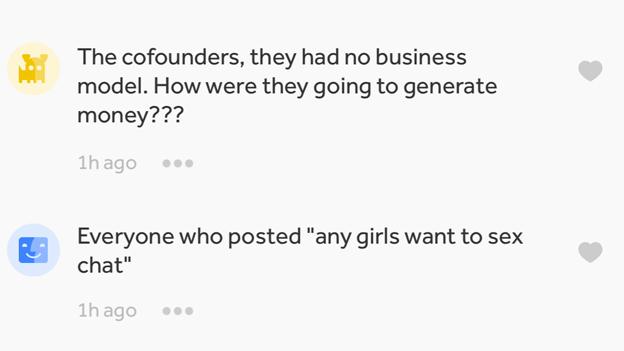Secret fails fast - but did Silicon Valley fail too?
- Published
- comments

Silicon Valley is applauding the founder of the Secret app, which allows people to share rumours anonymously. Which is strange because he's failed.
But what he's done is admit that the project has gone wrong, shut it down and return the remaining cash to investors. And in the West Coast start-up bible, failing fast and moving on has become one of the 10 commandments for all true entrepreneurs.
But what the Valley and its venture capitalists should perhaps be doing is asking why they threw money - $35m (£22.8m) in all - at what was an ethically dubious concept with no clear business model.
In a post on Medium announcing the closure of the business, external, David Byttow says: "Secret does not represent the vision I had when starting the company." He goes on to explain that anonymity is a great device to achieve honest and open communication but is also "the ultimate double-edged sword".
You can say that again. In its early days, it was one of those hot apps that got Silicon Valley very excited - mainly because it was a scurrilous message board for the tech community. A couple of good stories did emerge there - the imminent departure of a senior Google executive, and Nike's scaling down of its FuelBand project.
But things degenerated pretty quickly, and it became a forum for semi-pornographic chatter and a lot of spam. In recent months it appears to have been dominated by posts from Indonesia, and today as news of the imminent closure spread that was seen as part of the problem: "Indonesians have ruined Secret" said someone. "All normal people have left because of them."
But when I asked (yes, it was my first post since joining) who was to blame for the failure of Secret, I got these two answers:

What then, did blue chip venture capital funds like Kleiner Perkins, Google Ventures and Index Ventures - all early investors in Secret - think they were backing? A game-changing social network where anonymity would attract millions of people to indulge in the "open communication and free expression" the founder dreamed about? If so, how would these people be monetised in a world where advertisers want to target audiences ever more precisely?
And did they consider the reputational risks that were an obvious danger to anyone who has seen what use trolls and bullies make of anonymity elsewhere in the online world? Problems swiftly emerged, with complaints that Secret was being used to harass and target people and was unsafe for teenagers to use. One of the investors, Redpoint, leaped to the company's defence, external, claiming that anonymity would allow whistleblowers and citizen journalists to take on oppressive regimes.
Of course, none of that happened - and as there were already plenty of non-commercial ways of releasing information anonymously online, it was always unlikely that a dissident or whistleblower would turn to a place crowded with people looking for sex chat.
The truth is that there is fierce competition right now to get in early on any start-up that looks buzzy - who wants to be the guy that turned down WhatsApp in 2009 or Snapchat in 2012? And if that means throwing a few million dollars at companies which appear to have no moral or business compass, then so be it.